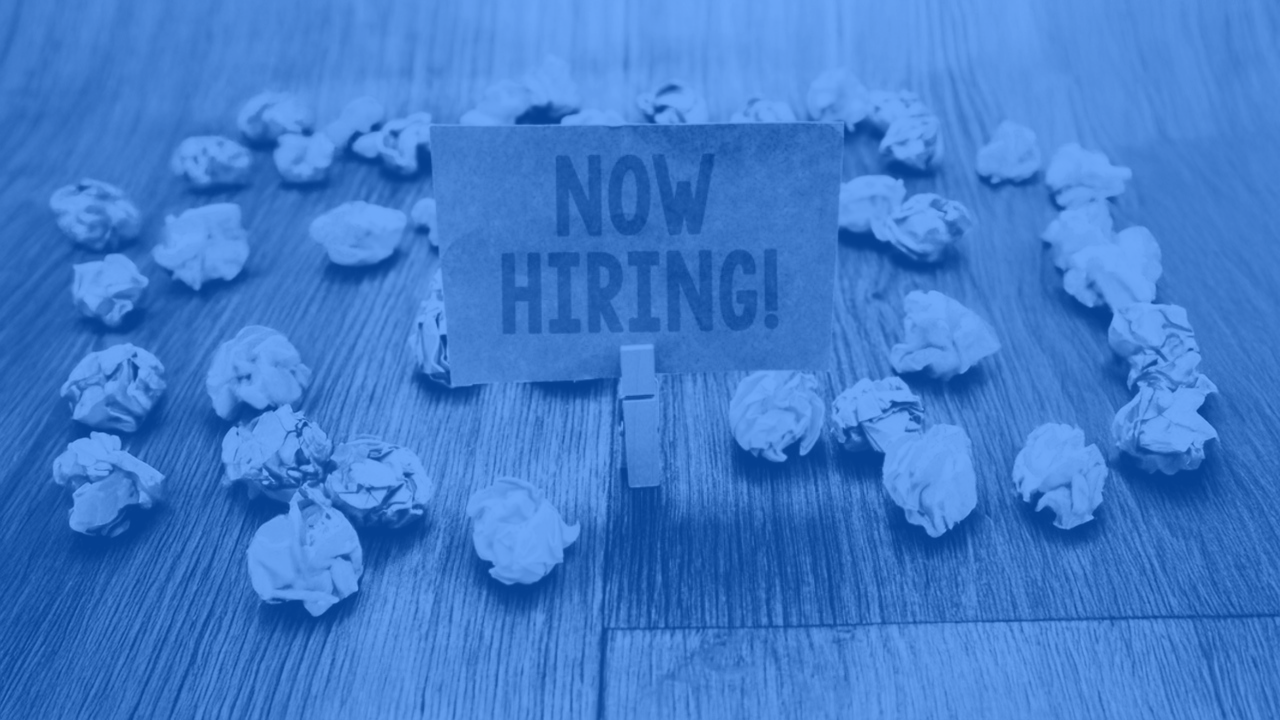8-minute read
Key Takeaways
- Soft skills in tech recruitment have become a core factor for long-term success, not a “nice-to-have.”
- The six essential soft skills every recruiter should assess are communication, adaptability, collaboration, problem-solving, empathy, and accountability.
- Behavioral interviews, structured scoring, and peer evaluations make soft-skill assessment measurable and consistent.
- Recruiters who master this human side of tech hiring reduce turnover and build stronger, more cohesive teams.
Table of Contents
- Why Soft Skills Matter in Tech Recruitment
- The Six Soft Skills that Define Top Tech Talent
- How to Evaluate Soft Skills in Tech Recruitment
- Integrating Soft Skills into Every Stage of Hiring
- Common Mistakes to Avoid
- Practical Steps to Strengthen Your Hiring Process
- How HR Oasis Can Help
Why Soft Skills Matter in Tech Recruitment
Hiring for technology has evolved far beyond coding tests and frameworks. Today, the success of a software team depends on how people communicate, collaborate, and adapt to uncertainty.
A developer might write clean, efficient code, but if they struggle to explain their decisions, work across time zones, or respond constructively to feedback, the entire project slows down.
That is why soft skills in tech recruitment are now the key to building sustainable, high-performing teams.
According to LinkedIn’s 2024 Global Talent Report, 89% of tech leaders believe soft skills are as important as hard skills. Most project failures are caused by poor communication, unclear ownership, or cultural misalignment—not a lack of technical ability.
At HR Oasis, we have seen that clients who actively assess soft skills in Tech Recruitment from the very first screening call enjoy higher retention rates, faster onboarding, and smoother collaboration between distributed teams.
The Six Soft Skills that Define Top Tech Talent
The following six soft skills consistently differentiate high-impact developers from average ones. These are the skills every recruiter should measure and every company should nurture.
1. Communication
Technical excellence means little without clarity. Great engineers can translate complex ideas into language that clients, PMs, and peers can understand.
What to look for:
- Whether the candidate can explain past projects clearly and concisely.
- How they handle questions and interruptions.
- If they use “we” instead of “I” when describing achievements.
How to test it:
Ask: “Tell me about a time you had to explain a technical concept to a non-technical stakeholder. How did you approach it?”
Strong communicators demonstrate structure, empathy, and confidence without arrogance.
2. Adaptability
Technology changes constantly. The best professionals embrace that change instead of resisting it.
What to look for:
- Evidence of continuous learning or self-taught skills.
- Positive attitude toward shifting priorities or tools.
- Stories where they adapted mid-project and still delivered results.
How to test it:
Ask: “Can you describe a project where requirements changed unexpectedly? What was your response?”
Adaptable candidates describe challenges with curiosity, not frustration.
3. Collaboration
No developer succeeds in isolation. Effective collaboration ensures quality, speed, and morale across remote teams.
What to look for:
- How candidates credit team members in success stories.
- Experience with pair programming or agile ceremonies.
- Their approach to giving and receiving feedback.
How to test it:
Ask: “Describe your ideal team environment. What helps you collaborate effectively?”
The answer reveals both preferred culture and ability to align with others.
4. Problem-Solving
Beyond code, recruiters must look at how a candidate approaches complexity. Analytical thinking, creativity, and resilience separate senior-level engineers from those who need supervision.
What to look for:
- How they analyze vague requirements.
- Whether they explore multiple solutions before deciding.
- Comfort with uncertainty.
How to test it:
Ask: “You receive a project brief that is incomplete and unclear. What is your first step?”
The best candidates talk about clarifying, researching, and collaborating before jumping into code.
5. Empathy
Empathy is the quiet strength behind great products. Developers with empathy design with users in mind and collaborate with patience under pressure.
What to look for:
- Tone when describing former teammates or managers.
- Awareness of how their work affects others.
- Willingness to help struggling colleagues.
How to test it:
Ask: “Tell me about a time a teammate was having difficulty with their workload. How did you handle it?”
Empathy shows maturity, self-control, and the ability to build trust.
6. Accountability
Modern engineering thrives on autonomy. Accountability ensures that independence leads to results, not chaos.
What to look for:
- Evidence of owning mistakes and learning from them.
- Consistency in meeting commitments.
- Initiative in solving problems without being told.
How to test it:
Ask: “Describe a time you missed a deadline or made an error. What did you do next?”
Accountable professionals focus on responsibility and improvement, not excuses.
How to Evaluate Soft Skills in Tech Recruitment
Once you know what to look for, the challenge is assessing it fairly and consistently. These practical frameworks make it achievable.
Behavioral Interviews
Replace hypothetical questions with real examples. Behavioral interviews (“Tell me about a time when…”) uncover actual patterns that predict future performance. Use the STAR method (Situation, Task, Action, Result) to evaluate structure and reflection.
Structured Scoring
Create a matrix listing each soft skill and a simple 1–5 rating scale. This allows multiple interviewers to compare impressions objectively.
| Soft Skill | Poor (1) | Excellent (5) | Notes |
|---|---|---|---|
| Communication | Disorganized, unclear | Explains complex topics clearly | |
| Collaboration | Works alone | Seeks feedback, credits others |
This small step improves fairness and decision-making across your hiring team.
Peer Interviews
Developers can often identify subtle interpersonal strengths or weaknesses that recruiters might miss. Including peer interviews adds another layer of authenticity to your evaluation of soft skills in tech recruitment.
Role-Play Scenarios
Simulate situations like handling code review feedback or clarifying unclear requirements. Realistic interactions reveal genuine behaviors far better than theoretical answers.
Reference Checks with Behavioral Focus
Ask specific, situational questions rather than generic ones. For example:
- “How did they respond to feedback?”
- “What team culture brings out their best work?”
- “Can you describe how they handled conflict?”
The tone and details of each response reveal the truth behind the resume.
Building a Repeatable Framework for Soft Skills in Tech Recruitment
Many companies recognize the importance of assessing soft skills but struggle to apply a consistent, scalable method across multiple roles and interviewers. A repeatable framework brings structure and data to what often feels subjective.
The first step is to define a competency map that links each role to its required behavioral strengths. For example, a DevOps engineer may need accountability and problem-solving as core competencies, while a product designer may prioritize empathy and collaboration. Documenting these expectations helps standardize how your team evaluates soft skills in tech recruitment across departments.
Next, use calibrated scoring rubrics. Before interviews begin, align the hiring team on what “excellent,” “average,” and “weak” look like for each competency. This alignment minimizes bias and ensures that every recruiter interprets the same behaviors in similar ways.
Finally, invest in post-interview debriefs. Encourage recruiters, hiring managers, and peers to compare their behavioral observations. When teams explicitly discuss why they rated certain soft skills in tech recruitment higher or lower, it sharpens collective judgment over time. The goal is not just to assess better—it is to continuously improve how your company defines and measures these human capabilities.
By documenting, training, and iterating your process, you transform soft skills in tech recruitment from a vague concept into a measurable advantage that drives better hires.
Integrating Soft Skills into Every Stage of Hiring
To get real results, soft-skill evaluation must be part of the entire process, not an afterthought.
Job Descriptions: Include clear behavioral expectations like “strong cross-functional communication” or “constructive feedback mindset.”
Screening Calls: Listen for clarity, tone, and enthusiasm, not just keywords.
Technical Interviews: Combine code challenges with follow-up discussions about decision-making and teamwork.
Hiring Decisions: Give soft skills equal weight to technical performance when finalizing candidates.
When HR Oasis implements these steps with clients, they often discover that the “runner-up” on technical ability turns out to be the long-term success hire because of stronger interpersonal skills.
Common Mistakes to Avoid
Even experienced recruiters sometimes misread behavioral cues. Here are the most frequent pitfalls:
- Mistaking confidence for competence – Charisma can hide weak collaboration habits. Focus on evidence.
- Overvaluing cultural fit – Hiring people who “feel familiar” leads to bias. Aim for cultural add instead.
- Ignoring context – A quiet engineer in one company may thrive in a different environment.
- Lack of documentation – Without structured scoring, feedback becomes subjective and hard to defend.
- Treating soft skills in Tech Recruitment as secondary – They are just as measurable and impactful as technical performance.
Practical Steps to Strengthen Your Hiring Process
If you want to make soft-skill assessment a competitive advantage, here’s how to begin immediately:
- Update your job templates to highlight at least two key behavioral traits for every role.
- Prepare three behavioral questions for each skill you want to test.
- Train your interviewers to use the STAR framework and take consistent notes.
- Implement a shared evaluation matrix to align interviewer feedback.
- Follow up post-hire at 30 and 60 days to confirm the new hire’s integration aligns with expectations.
Each of these actions helps you gather evidence, reduce bias, and hire developers who thrive long-term.
By applying these practices consistently, you’ll strengthen your overall approach to soft skills in tech recruitment and make it a measurable part of your company’s hiring culture.
How HR Oasis Can Help
At HR Oasis, we help global companies recruit top LATAM tech talent that blends strong technical ability with equally strong soft skills.
Our process combines human expertise with AI-supported screening tools to deliver fast, accurate, and human-centered hiring decisions.
When you work with us, you gain:
- A specialized partner who understands soft skills in tech recruitment at every level.
- Structured assessment frameworks that make behavioral evaluation consistent.
- Transparent scoring reports for both technical and human competencies.
- Pre-evaluated bilingual candidates ready to collaborate across cultures and time zones.
Contact HR Oasis to discuss how we can optimize your tech hiring process and help you build resilient, high-performing teams.
Final Thoughts
Technical brilliance builds products. Soft skills in tech recruitment build teams that last.
In today’s global, hybrid work environment, the recruiters who master both will define the future of the tech industry.
Ready to strengthen your recruitment strategy?
Get in touch with HR Oasis to discover how our recruitment experts can help you identify, assess, and hire the human potential behind every line of code.




